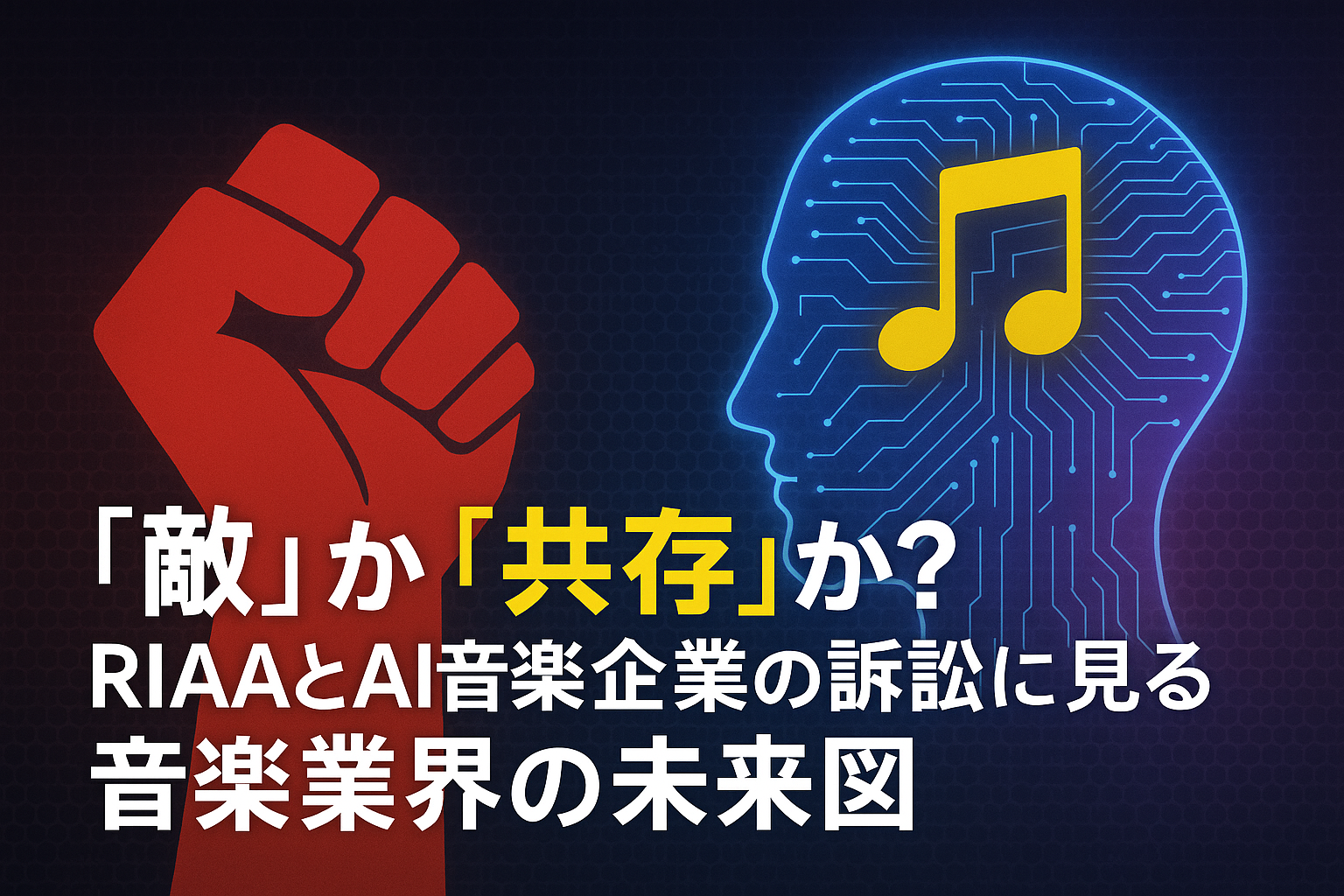In 2024, the Recording Industry Association of America (RIAA) filed a copyright infringement lawsuit against AI music generation startups “Suno” and “Udio.” What began as an aggressive legal move—with potential damages amounting to hundreds of billions of yen—has now taken a surprising turn, with reports suggesting that major music companies are exploring licensing agreements and even potential equity acquisitions. This development may signal more than just a path to settlement—it could mark the beginning of a structural shift in the entire music industry.
This article examines the background and implications of this shift, as well as the potential scenarios we may see unfold in the future.
The Copyright Grey Zone of AI Music
Suno and Udio have used vast quantities of existing songs as training data for their AI systems. Whether this practice constitutes “fair use” under copyright law has become a major point of contention. Proponents argue that AI-generated music is not mere duplication but a form of creative output based on statistical patterns. On the other hand, concerns remain over similarities to original works and their commercial use, which could lead to interpretations of copyright infringement.
This case challenges traditional legal interpretations and highlights the need to reconsider how the law understands creative capabilities in the age of AI.
What Licensing Negotiations Represent
Despite the ongoing lawsuit, the music companies’ decision to enter negotiations that include the possibility of licensing marks a significant turning point. It reflects a pragmatic industry stance: choosing control and monetization over outright exclusion. By imposing licensing fees on AI companies and creating mechanisms to distribute revenue back to artists, the industry may find a mutually beneficial model that supports all stakeholders.
Equity Acquisition—Oversight or Integration?
Another key development is the reported interest by music companies in acquiring minor equity stakes in Suno and Udio. Rather than a mere financial investment, this suggests an intention to monitor the evolution of AI music and shape industry standards proactively. It also hints at the possibility of future hybrid companies combining AI startups and traditional music labels, indicating a shift toward a more fluid, boundary-less industry landscape.
From Confrontation to Co-Creation
As the legal concept of copyright undergoes reexamination, the RIAA’s recent actions raise the fundamental question of how the music industry should respond to the diversification of creative tools. The movement from confrontation to co-creation could mark a pivotal moment: whether music created in the AI era will be recognized not merely as imitation, but as legitimate culture.
The next focal points will be the development of appropriate legal frameworks and the establishment of new compensation models for artists. The future of a music industry that coexists with AI is already taking shape.

